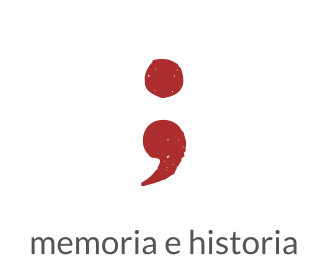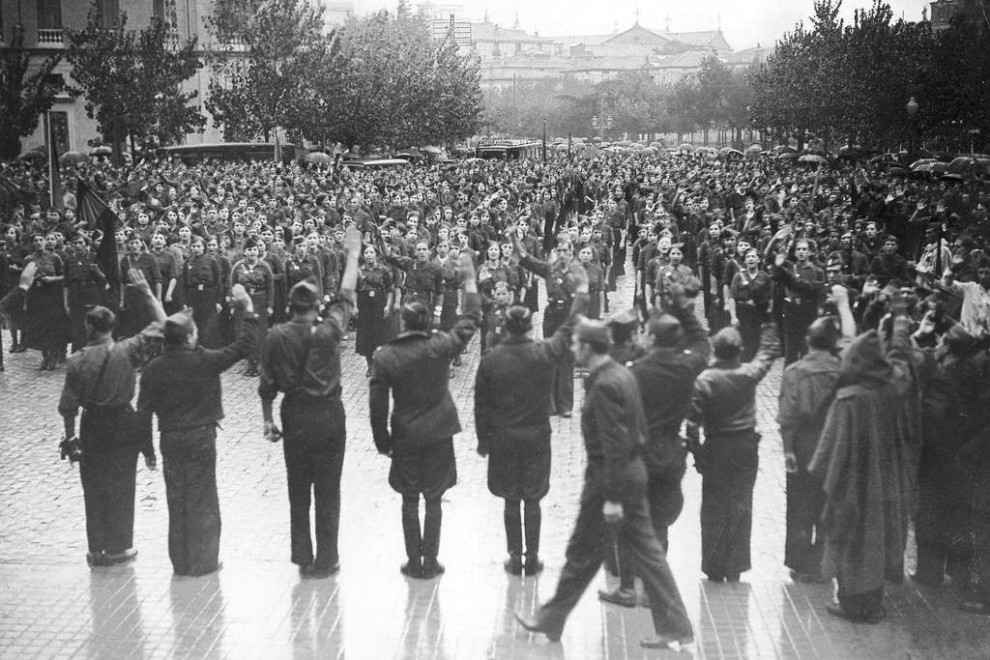TheVolunteers in August 29, 2020
Who were the soldiers who served in Franco’s insurgent army? Until recently, few historians or social scientists thought to ask this question. A new book complicates long-held assumptions.
For many years, Franco’s soldiers were assumed to be militarists and counterrevolutionaries affiliated with the reactionary right-wing parties that were the source of political repression. In public opinion, this image of Franco’s army coexisted with family memories (“My grandfather, may he rest in peace, fought with the Nationalists”) although for the most part the story of Franco’s soldiers remained vague or unknown.
In recent years, however, a new generation of researchers has been attempting to discover who these soldiers were. As it turns out, the picture is much more complex than many thought. In my book, Franco’s Soldiers, which came out earlier this year with Siglo XXI, I show that the insurgent army consisted in large part of forced conscripts, without regard for ideology. As a result, the army was much more heterogeneous than has long been assumed. The same is true for the identity of Franco’s veterans in the post-war years, whether it relates to gender and work or to sports, territory, nation, class or professed political affiliation.
My research questions the idea that Franco’s soldiers were necessarily socialized into Francoist values—values that, in any case, were only very vaguely defined in the years immediately following the war. Instead of such widespread indoctrination, the conscripts’ diverse, and often difficult, experiences shaped a broad range of changing, voluble identities that were often in tension with the organic-historicist identity defended by the insurgents.
All this took place against the backdrop of a radical break with the liberal past—the years of the Second Republic—and the social-relational norms it had established. With the insurgent victory, other rules were implanted based on terror, surveillance, punishment and poverty. Spaniards generally adapted by remaining silent to avoid prison.
The veterans of Franco’s army had lived through the harshest of experiences: many spent three years at the front, their daily existence marked by violence, hunger, and filth. Among them were agricultural laborers, students, industrial workers, lawyers, and professors. As conscripts, they were often forced into violent acts that they would never have committed under normal circumstances. And, as we know, war tends to unleash the most primal survival instincts.
As my book makes clear, war is not about heroics, despite what the collective memory and movies might say. Even less so in a civil war, where fellow citizens are pitted against each other and where, as a conscript, one may be ordered to kill one’s neighbor or brother just because he belongs to a leftist labor union or voted for the Popular Front. If my book shows anything, it’s that the future dictator forced many Spaniards to make a terrible choice: to become his henchmen or to die.
Francisco J. Leira-Castiñeira, who holds a doctorate from the Universidade de Santiago de Compostela, is the author of Soldados de Franco. Reclutamiento forzoso, experiencia de guerra, desmovilización militar (Siglo XXI). In 2012, his research on the topic received an honorable mention in ALBA’s George Watt Essay Contest; in 2018, his dissertation won the Miguel Artola Prize in Contemporany History (2018).

